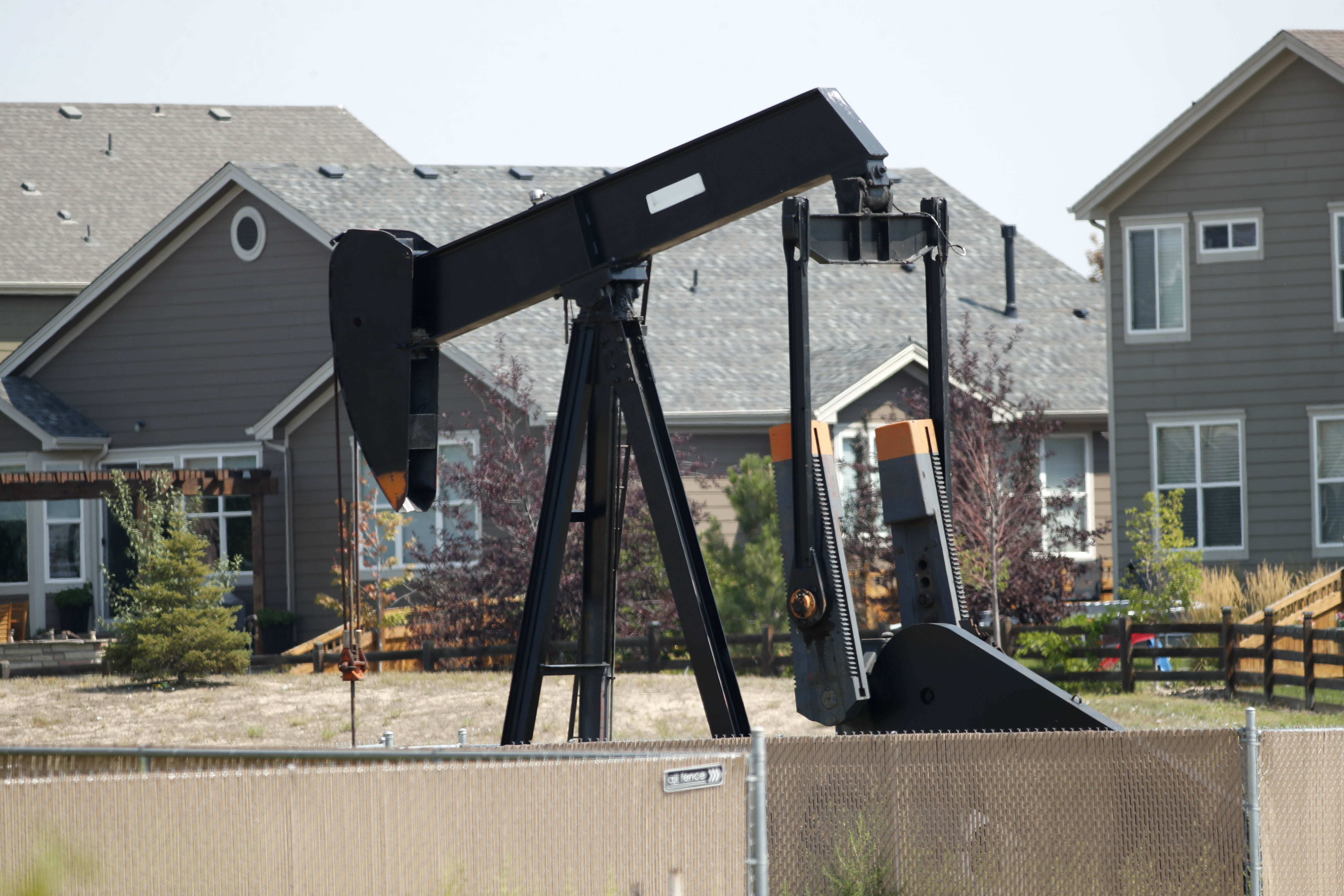
Colorado lawmakers pass dramatic drilling rule changes
DENVER (AP) — Colorado lawmakers gave final approval Wednesday to a measure that would dramatically change the way the state regulates its booming oil and gas industry, shifting the focus to protecting public health instead of encouraging production.
Democratic Gov. Jared Polis is expected to sign the measure.
“The governor is thrilled to see it pass,” said his spokeswoman, Laurie Cipriano. “This bill protects the health and safety of Colorado families and communities and it represents a meaningful step forward for the state,” she said.
Opponents immediately announced an attempt to repeal and replace the measure.
Driven by majority Democrats, the bill survived fierce challenges from the industry and GOP lawmakers, who warned it could gravely damage a multibillion-dollar industry.
Final passage came on a 19-16 party-line vote in the Senate.
Conservation groups praised the bill as a step toward protecting people and the environment.
“These are the protections Coloradans are clamoring for,” said Sam Gilchrist, Western campaigns director for the Natural Resources Defense Council. “They’re vital for our health and safety and are needed nationwide.”
Industry groups said it threatens a vital segment of the state economy.
“Our industry remains firmly opposed to this bill because it threatens one of the pillars of Colorado’s economy,” the Colorado Oil and Gas Association and the Colorado Petroleum Council said in a joint statement.
Colorado is a major energy-producing state, ranking fifth in the nation for crude oil production and sixth in natural gas. But fast-growing communities north of Denver have expanded into the rich Wattenberg oil and gas field, triggering frequent complaints from residents about noise, lights, air pollution and the threat of explosions.
Besides changing the priority of the Colorado Oil and Gas Conservation Commission, which regulates the industry, the bill gives local governments the power to restrict the locations of new wells. Under current law, only state regulators have that authority.
The bill changes the makeup of the Oil and Gas Conservation Commission to weaken industry influence. After Wednesday’s vote, the commission postponed its regular monthly meeting for April, saying it wanted to give Polis time to evaluate the measure.
The measure also sets tougher requirements for “forced pooling,” a practice that allows an energy company to extract oil and gas owned by multiple parties — even those who object — and then distribute the profits among them.
Republicans and the industry won a few concessions, including a change in the bill’s language so new state and local restrictions would have to be “necessary and reasonable.”
The bill also makes Oil and Gas Conservation Commission members full-time professionals instead of part-time volunteers, in hopes of minimizing delays in rule making and approving drilling permits.
Weld County Commissioner Barbara Kirkmeyer and former Arapahoe County Commissioner John Brackney said Wednesday they will try to put a measure on the November ballot asking voters to annul the changes and create a nonpartisan state regulatory body.
“What we’re trying to do is narrow it to one independent commission and prevent one party or another from politicizing it,” said Kirkmeyer, an outspoken proponent of oil and gas development.
The bill is the first significant setback the industry has suffered in Colorado in years. Energy companies spent heavily on advertising to defeat a ballot issue in November that would have increased the minimum distance between new wells and homes and schools to 2,500 feet (750 meters), up from the current 500 feet (150 meters).
But in the same election, Democrats won control of the state Senate while retaining their hold on the House and governorship, allowing them to push through the new rules.
The oil and gas industry says it contributes $32 billion annually to the state economy, including taxes and 89,000 direct and indirect jobs.
Analysts have so far avoided making predictions on the impact of the new rules. They point out that it may have little effect in the heart of the Wattenberg field, where energy-friendly Weld County is unlikely to impose tighter rules.
But communities on the edges of the field, including Boulder and the Denver suburbs, are expected to impose their own restrictions.
Even before the bill passed, Adams County, on the southern fringe of the Wattenberg, imposed a moratorium on new drilling. County officials said they feared a rush of permit applications from companies trying to get projects approved under the old rules.
The overall impact of the bill would be to raise the cost of producing oil and gas in Colorado, which could drive some production to states with more lenient rules, said Bernadette Johnson, vice president for market intelligence for Drillinginfo Inc., which provides data and analysis to the oil and gas industry.
“I would say in general, what the bill does is it makes it harder to do business in Colorado,” Johnson said in an interview last week.
The Western Journal has not reviewed this Associated Press story prior to publication. Therefore, it may contain editorial bias or may in some other way not meet our normal editorial standards. It is provided to our readers as a service from The Western Journal.
Truth and Accuracy
We are committed to truth and accuracy in all of our journalism. Read our editorial standards.
Advertise with The Western Journal and reach millions of highly engaged readers, while supporting our work. Advertise Today.












